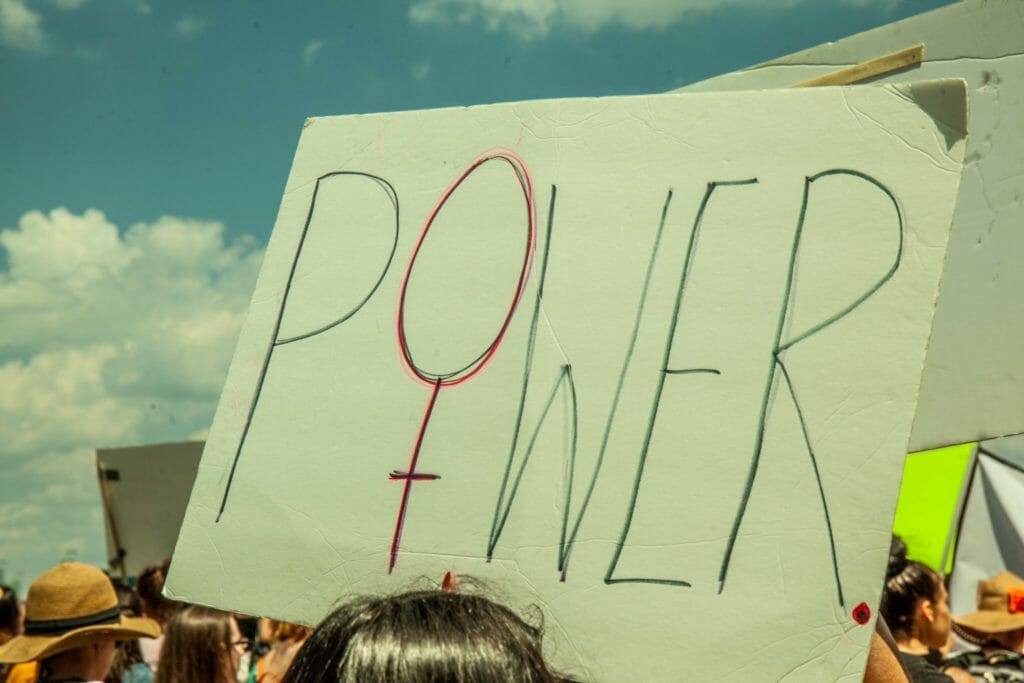Following the state’s Democratic wins in the 2020 general election, GOP legislators introduce new voter suppression bills in the Georgia General Assembly
ATLANTA — On Mon., Feb. 8, the Georgia General Assembly met for its 13th day of its 40-day legislative session. Last week, the state’s Republicans introduced a number of restrictive voting bills, including attempts to limit absentee voting and secure drop boxes.
Georgia reported record numbers in voter turnout for the 2020 general election, as well as the U.S. Senate runoffs that delivered the historic wins of Sens. Raphael Warnock and Jon Ossoff. The state flipped blue for the first time since President Bill Clinton’s election in 1992, and the Democrats’ Senate wins unseated both 18-year incumbent David Perdue and Gov. Brian Kemp-appointee Kelly Loeffler. In the Georgia State Senate, Republicans maintain majority rule with 34 Republicans and 21 Democrats. The next election cycle for the state senate will be in November 2022.
According to the Pew Research Center, Black, Latino, and Asian Americans have been key to Georgia’s registered voter growth since 2016. The research center also reported that the Atlanta metropolitan area added 301,000 registered voters from 2016 to 2020 and accounted for a majority of the state’s increase (58%) during this time. Overall, the metro Atlanta area’s 3.9 million registered voters account for 54% of the state’s registered voters in 2020. The Atlanta area, which had a turnout rate of 70% among registered voters, aided Biden’s win.
These turnouts and increases in registration have occurred in spite of voter suppression efforts at the state level, which garnered national attention following Georgia’s 2018 gubernatorial race between then-Secretary of State Kemp and House Minority Leader Stacey Abrams. Following the 2018 election results, Abrams founded the nonprofit Fair Fight and its litigation arm, Fair Fight Action, to launch full-fledged investigations, lawsuits, and mobilization efforts to combat institutionalized voter suppression in Georgia. Fair Fight expanded into 19 other states in 2019.
Due to circumstances presented by the global coronavirus pandemic coupled with immense voter protection and mobilization efforts, Georgia saw record-breaking numbers for absentee ballot voting. Following the state’s primary election last summer, WABE reported that mail-in ballots contributed to higher Georgia Democratic voter turnout according to primary data. The Secretary of State’s office reported record numbers for mail-in voting throughout the state\’s early voting period.
Allegations of voter fraud in Georgia remain unproven and unsubstantiated. Further, the Brennan Center for Justice reports that extensive research reveals that fraud is extremely rare. The center’s seminal report, The Truth About Voter Fraud, found incident rates were between 0.0003 and 0.0025%. The report also noted that it is more likely an American “will be struck by lightning than he will impersonate another voter at the polls.”
Now, with the Republican-dominated Georgia State Assembly in its first legislative session of the year, multiple bills that seek to restrict mail-in voting and greater, more equitable access to the ballot sit in the chambers. Here is a brief rundown of what they are, as provided by Rep. Bee Nguyen of District 89.
Senate Bill 67
This bill would require voters to scan and print a copy of valid ID and submit when applying to vote by mail. Currently, through the Secretary of State’s portal, voters can submit their driver’s license number online. This will especially disenfranchise low-income and/or rural voters, a demographic that is disproportionately voters of color. In addition, current law requires two forms of signature matches to verify the identity of the individual.
Current status: Senate read and referred
Senate Bill 69
This legislation would end a successful automatic voter registration policy put into place in 2016. When an individual receives their driver’s license, the individual is automatically registered, unless said person chooses to opt out. Georgia leads in automatic voter registration and is among 16 states to have this policy in place. (This automatic voter registration is also included in the For the People Act, H.R. 1 and S. 1, which has been introduced in Congress, to enact this registration policy on a federal level.)
Current status: Senate read and referred
Senate Bill 71
This bill would repeal the no-excuse absentee ballot voting law put into place by Georgia Republicans in 2005. In 2020 and 2021, an unprecedented number of voters opted to vote absentee because of the pandemic. This bill would only allow individuals age 75 or older, those who have physical disabilities, those observing religious holidays, or those who are unable to vote in person because of employment obligations related to public safety to vote by mail.
Current status: Senate read and referred
Senate Bill 73
This bill would prohibit any third party from proactively sending out applications to vote by mail. Under this bill, the only entities allowed to send out applications would be the Secretary of State, local election boards, and candidates or their campaign committees.
Current status: Senate read and referred
House Bill 270
This bill would prohibit election boards from sending or issuing any absentee ballot 10 days prior to Election Day. Currently, the deadline for a voter to request an absentee ballot is three days before Election Day. If passed, this means an individual who requested a ballot months ahead of time may not receive their ballot if the local election board is backlogged. This bill does not include any provisions that would hold local election boards accountable for not issuing or mailing ballots in a timely manner. The legislation does not account for any kind of medical emergency or public health emergency that would prohibit an individual from voting in person.
Current status: House first readers
If you wish to express your opposition to these bills, please direct calls or emails related to Senate bills Lt. Governor Geoff Duncan through this contact form or 404-656-5030. Please direct calls or emails related to House bills to Speaker David Ralston at [email protected] or 404-656-5020, as well as to members of the Special Committee on Election Integrity.
Meanwhile, on Capitol Hill, Congress has introduced the For the People Act (H.R. 1 and S. 1), a “transformational anti-corruption and clean elections reform package.” Title I of the legislation includes former Congressman John Lewis’s monumental Voter Empowerment Act, which was introduced every year since the 112th Congress.
To learn more about the For the People Act, listen to The Intercept’s latest episode of Deconstructed, Could the \’For the People Act\’ save American democracy?, featuring the bill’s sponsor in the House, Rep. John Sarbanes (D-MD).




